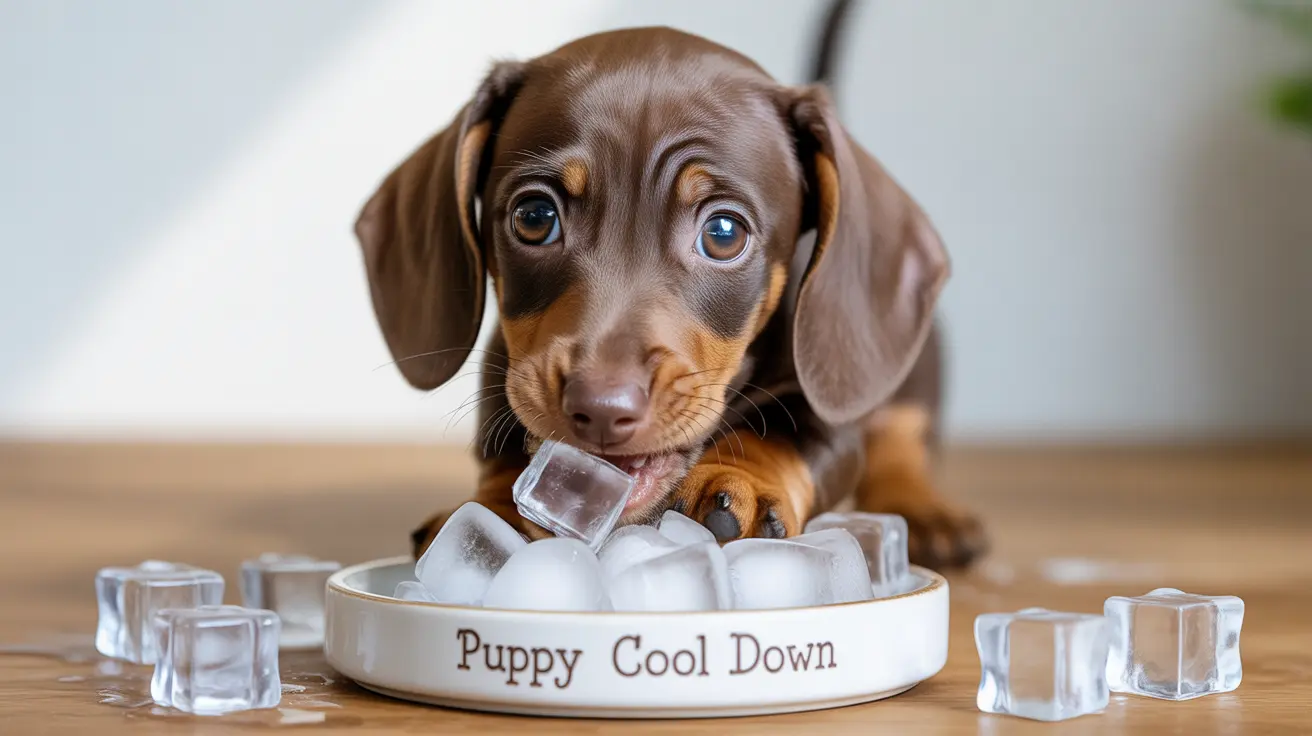When your puppy enters the teething phase, finding safe and effective ways to soothe their discomfort becomes a top priority. Many pet parents wonder about using ice cubes as a remedy, and for good reason. This comprehensive guide will explore the benefits and risks of using ice cubes for teething puppies, along with expert-recommended alternatives to ensure your furry friend's comfort and safety.
Understanding Puppy Teething: What to Expect
Puppy teething typically begins around 3-4 months of age when baby teeth start falling out to make way for adult teeth. During this process, which usually continues until 6 months of age, puppies experience significant discomfort and may show increased chewing behavior, drooling, and mild irritability.
Your puppy will eventually develop all 42 adult teeth, replacing their initial set of 28 puppy teeth. This transition period can be challenging for both puppies and their owners, making it crucial to understand safe relief options.
The Truth About Ice Cubes and Teething Puppies
Ice cubes can provide temporary relief for teething puppies when used appropriately. The cold temperature helps numb sore gums and reduce inflammation, while the hardness satisfies their natural urge to chew. However, there are important safety considerations to keep in mind:
Benefits of Ice Cubes for Teething Relief
- Natural pain relief through cold therapy
- Cost-effective solution readily available at home
- Helps reduce inflammation in sore gums
- Provides entertainment and distraction
Safety Precautions When Using Ice Cubes
While ice cubes can be helpful, they should be offered with certain precautions:
- Always supervise your puppy when giving ice cubes
- Crush ice into smaller pieces for small breeds
- Avoid giving whole ice cubes to aggressive chewers
- Remove ice if your puppy tries to swallow large pieces
Safer Alternatives to Plain Ice Cubes
Frozen Treats and Modified Ice Options
Consider these safer alternatives to regular ice cubes:
- Freeze diluted low-sodium chicken broth in ice cube trays
- Create frozen treats using puppy-safe peanut butter
- Use specially designed freezable teething toys
- Offer frozen wet washcloths (supervised use only)
Commercial Teething Solutions
Invest in products specifically designed for teething puppies:
- Rubber teething toys with varying textures
- Frozen teething rings made for puppies
- Dental chews formulated for young dogs
- Cooling gel toys designed for teething relief
Recognizing Signs of Teething Problems
While teething is natural, watch for these warning signs that may require veterinary attention:
- Excessive bleeding from the gums
- Severely decreased appetite
- Retained baby teeth alongside adult teeth
- Signs of infection or unusual swelling
Frequently Asked Questions
Are ice cubes good for puppies teething, and how can they be used safely?
Ice cubes can be beneficial for teething puppies when used properly. Crush ice into smaller pieces or use ice chips to prevent choking hazards. Always supervise your puppy and remove the ice if they try to swallow large pieces.
What are the best alternatives to ice cubes for soothing a teething puppy?
The best alternatives include frozen washcloths, specially designed puppy teething toys, frozen low-sodium broth cubes, and commercial teething rings made specifically for puppies.
How can I prevent my puppy from chewing on household items during teething?
Provide plenty of appropriate chew toys, rotate them regularly to maintain interest, puppy-proof your home, and use deterrent sprays on furniture. Consistent training and supervision are also essential.
Can ice cubes damage a puppy's teeth, and what are the risks?
While ice cubes can potentially damage puppy teeth if they're too hard or if the puppy chews too aggressively, the main risks are choking and dental injury. Using crushed ice or ice chips minimizes these risks.
How do I know if my puppy is teething, and what are the common signs of teething pain?
Common signs include excessive chewing, drooling, red or swollen gums, visible gaps where baby teeth have fallen out, mild bleeding on toys, and sometimes decreased appetite or irritability.
Remember, while ice cubes can be a helpful tool in your puppy teething arsenal, they should be just one part of a comprehensive approach to managing your puppy's teething phase. Always consult with your veterinarian for personalized advice based on your puppy's specific needs and circumstances.






